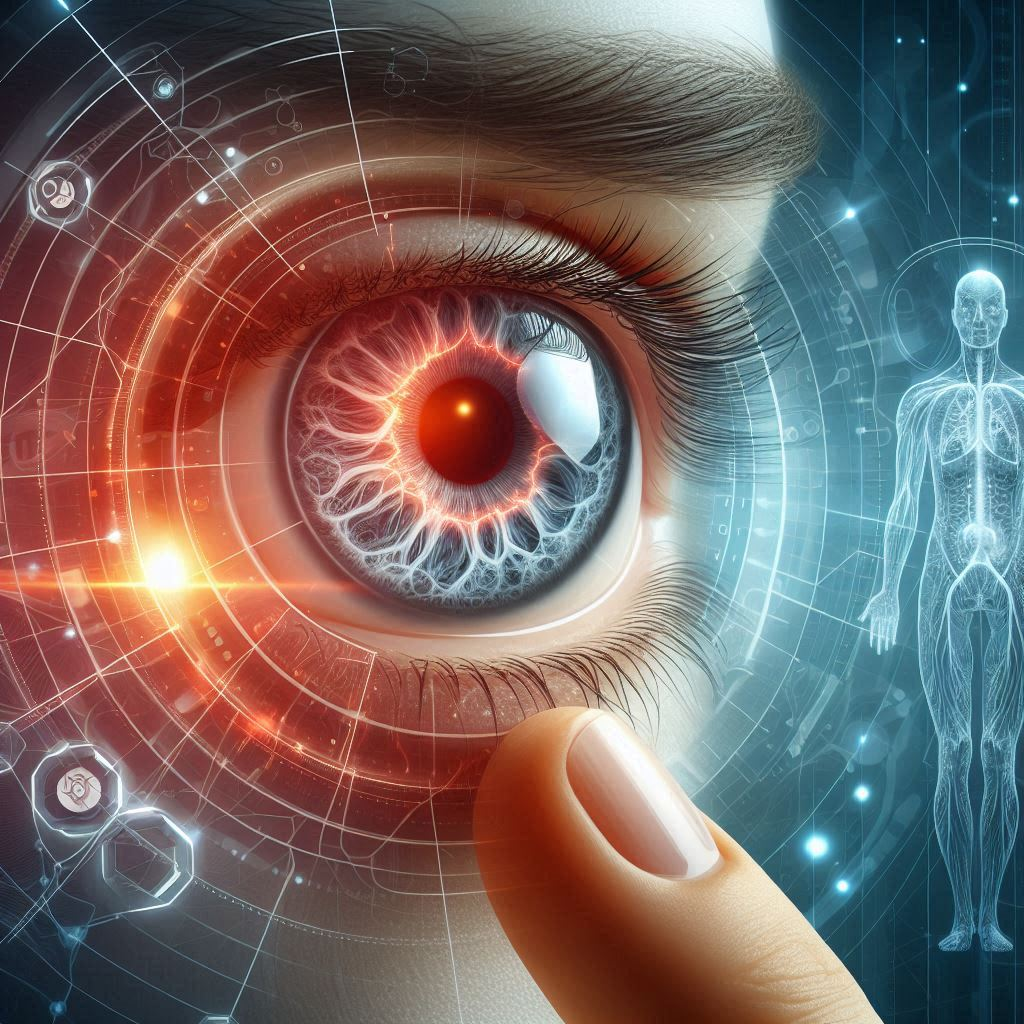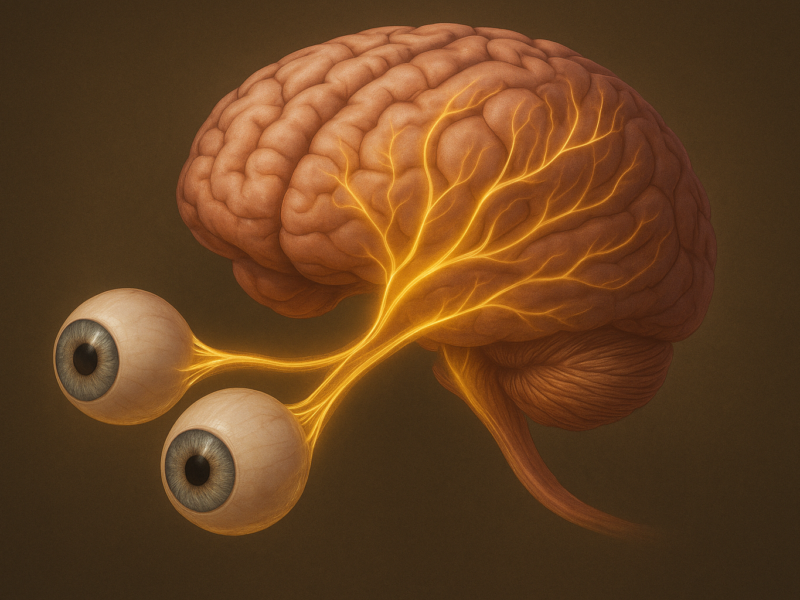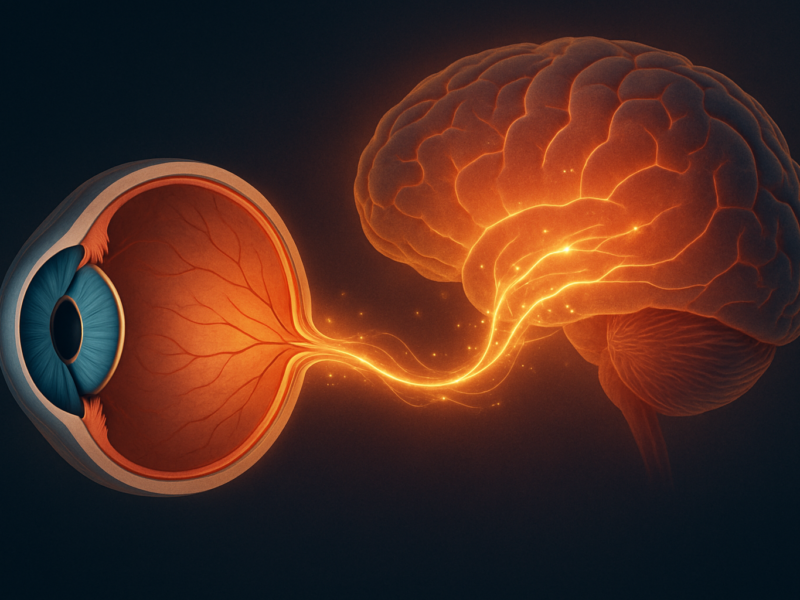Macular degeneration, also known as age-related macular degeneration (AMD), is one of the leading causes of vision loss in people over 50. Learn more about other the 5 most common eye problems and how to prevent them. It affects the macula, the central part of the retina responsible for sharp, detailed vision. While AMD does not cause complete blindness, it can significantly impact daily activities such as reading, driving, and recognizing faces.
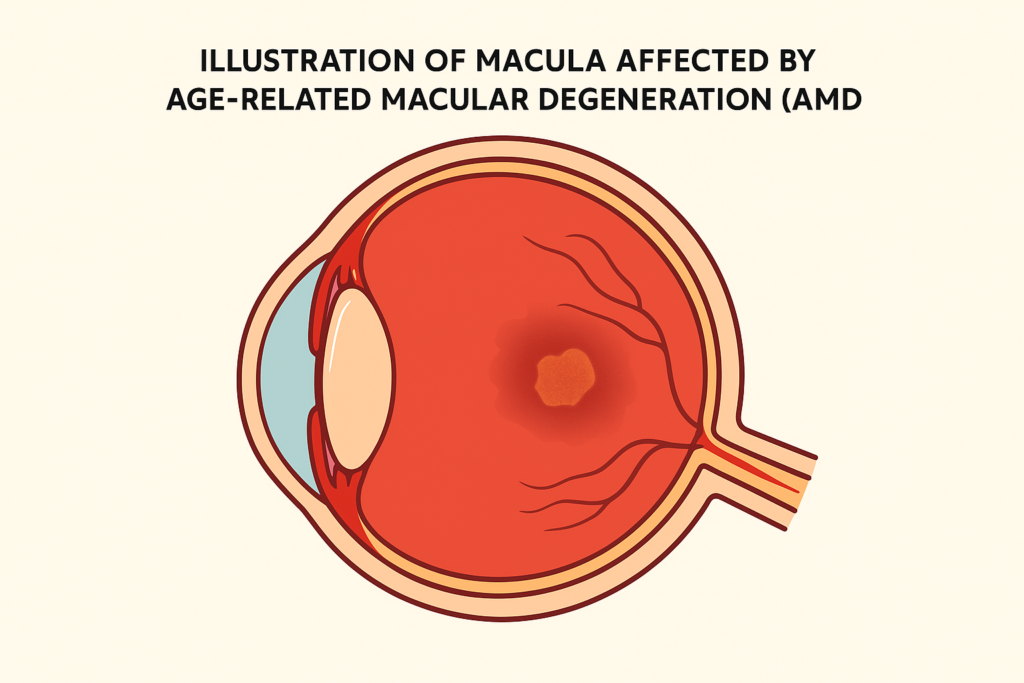
🔎 Types of Macular Degeneration
There are two main types of AMD:
- Dry AMD (Atrophic) – This is the most common form, where the macula gradually thins over time.
- Wet AMD (Neovascular) – Less common but more severe; abnormal blood vessels grow under the retina and leak fluid or blood, causing rapid vision loss.
👁️ Early Signs and Symptoms
The first signs of macular degeneration can be subtle, which makes regular eye exams crucial. Common symptoms include:
- Blurry or fuzzy central vision
- Dark or empty spots in the center of vision
- Difficulty recognizing faces
- Straight lines appearing wavy or distorted (Amsler grid test can detect this)
- Reduced brightness of colors
🛡️ Risk Factors
Several lifestyle and genetic factors can increase your risk of developing AMD:
- Age (most common in adults over 50)
- Family history of AMD
- Smoking
- High blood pressure
- Obesity
- Poor nutrition (low in antioxidants and omega-3s)
- Prolonged sun exposure
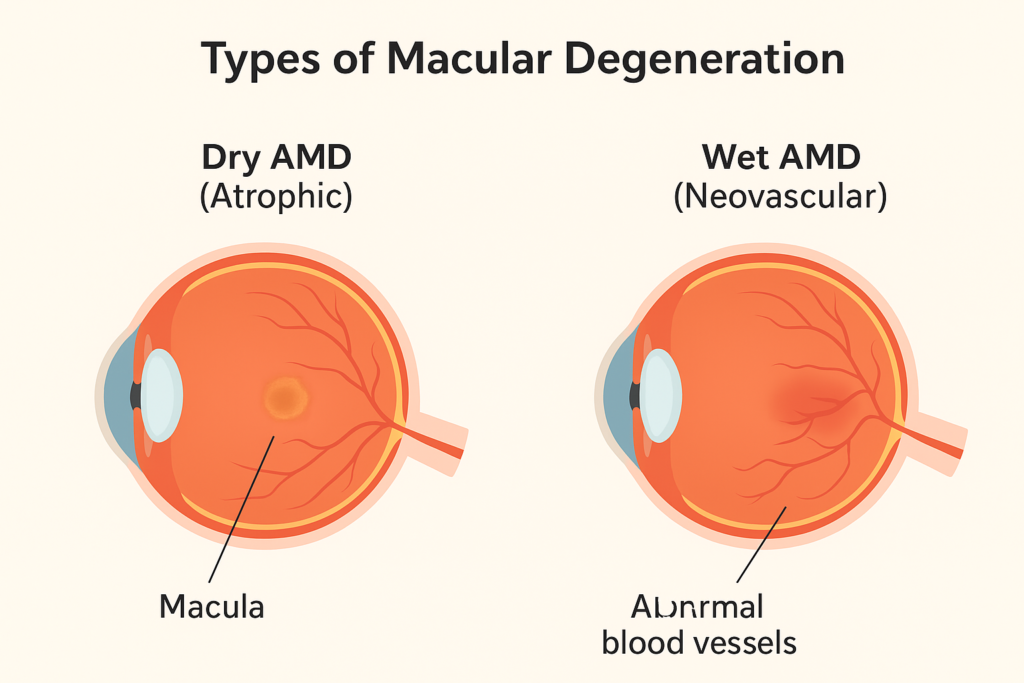
🌱 Prevention Tips
While there is no guaranteed way to prevent macular degeneration, the following habits can lower your risk:
- Eat a nutrient-rich diet – Leafy greens (spinach, kale), carrots, berries, and fish rich in omega-3 fatty acids.
- Quit smoking – Smoking doubles the risk of AMD.
- Maintain a healthy weight – Obesity contributes to faster disease progression.
- Protect your eyes from UV light – Wear sunglasses with 100% UVA/UVB protection.
- Exercise regularly – Supports healthy blood circulation to the eyes.
- Control chronic conditions – Especially hypertension and diabetes.
💊 Treatment Options
While there is no cure for AMD, several treatments can help slow progression and preserve vision:
- AREDS2 Supplements – A mix of vitamins C, E, zinc, copper, lutein, and zeaxanthin shown to reduce the risk of advanced AMD.
- Anti-VEGF Injections – Medications like Lucentis or Eylea that block abnormal blood vessel growth in Wet AMD.
- Laser Therapy – Sometimes used for abnormal blood vessels.
- Low Vision Aids – Magnifying lenses and special glasses can help maintain quality of life.
❓ Frequently Asked Questions (FAQ)
1. Can macular degeneration be cured?
No, there is currently no cure for AMD. However, treatments such as anti-VEGF injections, supplements, and lifestyle changes can slow down progression and help preserve vision.
2. What are the first warning signs of AMD?
Blurry central vision, wavy or distorted lines (detected with an Amsler grid), and difficulty recognizing faces are common early signs.
3. Who is most at risk of developing AMD?
People over 50, smokers, individuals with a family history of AMD, and those with poor diets or chronic conditions (like hypertension) have a higher risk.
4. How often should I get my eyes checked for AMD?
Adults over 40 should have regular eye exams every 1–2 years, and those with risk factors should get annual check-ups.
5. Can diet really help prevent AMD?
Yes. A diet rich in leafy greens, colorful fruits, and omega-3 fatty acids can reduce risk. Supplements such as AREDS2 are also proven to support eye health.
6. Is macular degeneration the same as cataracts or glaucoma?
No. AMD affects the macula (central vision), while cataracts cloud the eye’s lens and glaucoma damages the optic nerve. They are different conditions.
7. Can I go blind from AMD?
AMD does not usually cause total blindness, but it can severely reduce central vision, making daily activities like reading and driving difficult.
✅ Conclusion
Macular degeneration is a serious but manageable condition if caught early. Regular eye exams, a healthy diet, and protective lifestyle choices can significantly reduce your risk and slow down progression. If you notice vision changes, seek an eye specialist immediately for proper diagnosis and treatment.
